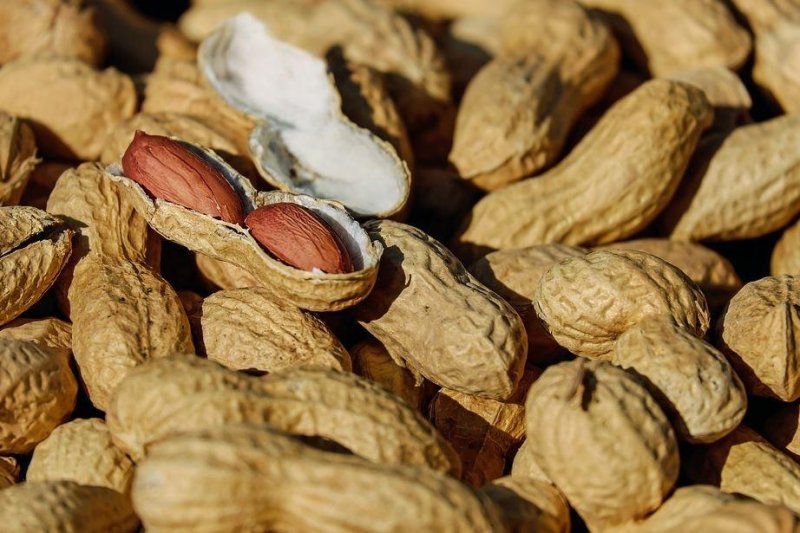Aimmune Therapeutics, a biopharmaceutical company, announced that its immunotherapy drug AR101 was safe and effective in a recent clinical trial. Photo by Couleur/
Pixabay
Feb. 21 (UPI) -- A new immunotherapy has shown promise in a clinical trial for people with severe peanut allergies, suggesting an easier path is ahead for those with the potentially life-threatening food allergy.
Aimmune Therapeutics, which focuses on treatments for food allergies, announced Tuesday that its Phase 3 efficacy trial of AR101 met its primary endpoint for safety and efficacy.
The AR101 study was part of a Phase 3 clinical trial known as PALISADE -- Peanut ALlergy oral Immunotherapy Study -- following it's Breakthrough Therapy Designation from the U.S. Food and Drug Administration.
The company, based in Brisbane, Calif., said it expects to seek FDA approval by the end of the year and plans to file for European approval in 2019.
In 2008, 1.4 percent of children in a survey by the Allergy Institute at Mount Sinai School of Medicine in New York were reported to have peanut allergies, as opposed to just 0.4 percent in 1997 -- a tripling of the number of people with the allergy of the course of a decade.
Without a cure and facing severe allergic results, these people must avoid any contact with peanuts.
The idea of using immunotherapy for peanut allergy is not new, as previous research has shown it may be effective. In 2016, the Learning Early About Peanut Allergy trial found infants who consumed 2 grams of peanut protein three times per week led to an 81 percent reduction in the development of peanut allergy.
Aimmune Therapeutics has developed a capsule containing a measured quantity of peanut flour that is opened and mixed into food. In this method, children who severely react to peanuts are sensitized with escalating doses of ingestible peanut protein.
"It changes the way the immune system sees 'peanut,' so it changes it from seeing it as something dangerous to something that is safe," Dr. Jonathan Tam, a pediatric allergy specialist who helped recruit test subjects for the company, told CBS. "It's not going to be for everybody but for certain families that are very anxious about having accidental exposures... this is a great therapy for them."
In the study, 496 participants between age 4 and 17 in the United States, Canada and eight countries in the European Union were only able to tolerate exposure to 10 percent of a single peanut.
The participants were given 600 milligrams of peanut protein, which is roughly the equivalent of two peanuts or a child-sized bite from a peanut butter sandwich.
Among the 372 receiving the peanuts, 67.2 percent tolerated a single 600 mg dose with no more than mild symptoms compared with 4.0 percent of the 124 placebo patients after six months.
In a large dose of 1,000 mg, 50.3 percent of AR101 patients tolerated a single highest dose compared with 2.4 percent of placebo patient.
After one year, 96.3 percent, or 296 participants, tolerated a single highest dose of at least 300 mg, 84.5 percent tolerated at least 600 mg and 63.2 percent tolerated 1000 mg. Among placebo users, 8.6 percent tolerated 300 mg, 4.3 percent tolerated 600 mg and 2.6 percent tolerated 1000 mg.
PALISADE also included 55 patients between age 18 and 49, of which 85 percent who completed the study tolerated at least 600 mg of peanut protein, compared with 15 of placebo participants.
"It's great to have patients go from managing to tolerate at most the amount of peanut protein in a tenth of a peanut without reacting to successfully eating the equivalent of between two to four peanuts with nothing more than mild, transient symptoms, if any at all," Dr. A. Wesley Burks, executive dean at the University of North Carolina School of Medicine and a principal researcher on PALISADE, said in a press release. "Patients and their families are highly motivated to pursue an effective treatment for peanut allergy, and AR101 could give them a comfortable margin of safety in case of accidental exposures."















